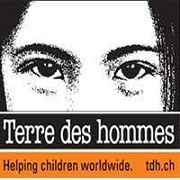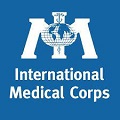Terre des hommes (Tdh) is the leading Swiss child relief agency. The Foundation has been helping children in need for over 50 years, defending their rights regardless of their race, creed or political affiliation.
Experience2 years
Location Borno.
Location: Rann, Kala/Balge LGA- Nigeria (100% Resident in Rann with regular travel to surrounding areas in Borno State where Terre des hommes (Tdh) has health interventions)
Duration: 6 months, (extendable based on availability of funds and Delegation strategy)
General Responsibilities of the position:
The Health Team Lead is responsible for the direct implementation of health interventions across primary healthcare centers (PHCCs) in Borno State supported by Tdh, with a focus on capacity building, quality supervision, and community-based health initiatives. This role will involve the training and deployment of Community Health Workers (CHWs) for early case detection, referral systems, and supporting local health authorities in partnership with the Ministry of Health (MoH).
Under the supervision of the Health Manager, he/she will:
- Be responsible of the emergency health response to the ongoing floods, ensuring both immediate relief and sustainable recovery.
- Ensure proper management and monitoring of funds.
- Be accountable to beneficiaries and donors and ensure that partners have learned the general code of conduct and always comply with them.
- Ensure that health interventions are coordinated, high-quality, and aligned with Tdh’s cross-cutting themes (e.g., protection, WASH) and support department (e.g. medical procurement). Contribute to the data collection and following up indicators (baseline, monitoring, and evaluation).
- Develop relevant local network to disseminate Tdh’s activities.
Specific Responsibilities of the position
More specifically he/she has the following responsibilities:
Health Program Implementation and Supervision:
- Primary Health Care Center (PHCC) support: Oversee and ensure the smooth functioning of supported PHCCs, focusing on maternal and child health, disease prevention, and emergency health responses.
- Quality supervision: Lead onsite supervision, alongside local MoH responsible, and mentorship for health staff and CHWs, ensuring adherence to WHO and national MoH health standards and protocols.
- Data collection and reporting: Monitor key health indicators, especially those related to maternal and child health, disease outbreaks (e.g., cholera, malaria), and malnutrition. Ensure the correct collection and analysis of health data for reporting and to inform decisionmaking at project level.
- Capacity building: Plan and facilitate training sessions for health staff and CHWs in areas such as disease detection, case management, referral processes, and health education, based on national MoH curriculum and material.
Community Health Worker (CHW) Program:
- CHW training: Coordinate, with the local MoH responsible, training and capacity building of CHWs to conduct community health education, active case finding, and early detection of diseases in vulnerable populations, including malnourished children and pregnant women.
- CHW deployment: Organize, with the local MoH responsible, the deployment of CHWs in camps, affected and hardtoreach areas to track and refer cases to PHCCs, ensuring that the referral system is efficient and timely, especially for children under 5.
- Monitoring and supervision: Provide regular field supervision of CHWs to ensure consistent quality of service and community engagement.
Partner relationship and coordination with local Ministry of Health (MoH):
- MoH Coordination: Serve as the focal point for local health authorities, especially with the MoH in Borno, to ensure alignment of Tdh\’s health interventions with government strategies.
- Health System Strengthening (HSS): Collaborate with MoH to support local health system strengthening, including health worker capacity building and improving service delivery at supported health facilities and at community level.
- Data sharing: Ensure regular communication with the MoH for data reporting, case tracking, and sharing best practices in health and nutrition service provision and timely report to his/her line manager.
Monitoring, evaluation, and reporting:
- Program monitoring: Establish systems for regular monitoring of health project activities, particularly in the areas of patient care, CHW performance, and referral outcomes, according to the project’s outputs and outcomes indicators.
- Data collection: Ensure timely collection, analysis, and reporting of health data, such as morbidity and mortality statistics, disease surveillance, and patient referral rates.
- Donor reporting: Assist the Health Coordinator in preparing reports for donors and partners, detailing program outcomes, challenges, and achievements.
Supplies management:
- Supply chain oversight: In close liaison with the Tdh Logistic department, ensure an adequate and MoH approved supply of essential drugs, medical equipment and consumables, and diagnostics for supported health facilities. Monitor storage conditions, stock levels, and ensure timely replenishment of health supplies (after validation by the Health Coordinator).
- Inventory control: In collaboration with MoH Health Officers at the PHCC, maintain inventories and track the movement of health supplies to ensure their efficient and freeofcharge use, and avoid stockouts.
Human Resource (HR) management:
- Staff supervision: Collaborate with the MoH responsible to supervise health staff at the PHCCs and in the camp, including Nutrition Officers, nurses, and CHWs. Provide mentorship and feedback to ensure highquality health service delivery.
- Performance management: Identify capacity gaps and ensure continuous professional development through coaching and training advice.
Partnership building:
- Coordination with stakeholders: Actively engage with local health authorities, humanitarian actors, and communitybased organizations to ensure coordinated and comprehensive health responses.
Skills
- This function requires possession of fundamental personal, social and leadership skills (CPSLs), technical and methodological skills (CTMs) and Managerial and strategic skills (CMSs).
In particular:
- Proven ability to work in highpressure and potentially volatile emergency environments, particularly in humanitarian contexts with significant operational constraints.
- Proper integration and application of guidelines and strategy in the development and carrying out of health activities.
- Strong skills in planning, executing, and monitoring health interventions in complex settings.
- Experience working with government entities and humanitarian actors in health programs.
- Excellent verbal and written communication skills, with the ability to represent Tdh in coordination meetings with donors, local authorities, and partners.
- Strong analytical and decisionmaking skills, with the ability to adapt quickly in emergency situations.
- Sufficient knowledge of child protection and safeguarding policies, and commitment to Tdh’s risk management frameworks. Coordination with stakeholders: Actively engage with local health authorities, humanitarian actors, and community-based organizations to ensure coordinated and comprehensive health responses.
As well as the following specific “trade” skills:
- Confirmed experience in implementing projects in an NGO and/or international organization in his/her field of expertise, in international cooperation and/or humanitarian contexts.
- An excellent capacity of and ease in expressing him/herself in public (Cluster meetings, training) and adapting to their audiences (local authorities and communities).
- A collaborative attitude with colleagues in and outside the team.
- Management of time and priorities; meeting deadlines.
- Enthusiastic, reliable and independent with a strong organizational capacity, decision-making and conflict resolution.
- A capacity to identify challenges, foresee risks and inform the management with substantive recommendations.
- Excellent interpersonal qualities: integrity, a capacity to judge, diplomacy.
Required conditions
Training/Qualifications
- Medical, Paramedical, public health, perinatal health, nutrition, or a related field.
- Experience At least 2 years of professional experience in health program management, preferably in emergency and humanitarian settings. Proven experience in managing health teams, implementing capacitybuilding programs (CHW and community training is a plus), and working with local government and partners, particularly the Ministry of Health.
Technical skills
- Strong expertise in primary healthcare systems, nutrition programs, and community health initiatives.
- Knowledge of WHO protocols and MoH guidelines in emergency health response.
- Languages Fluency in English (written and spoken) is required; knowledge of local languages is an asset.
- IT knowhow
- Proficient in Microsoft Office
- The tasks and responsibilities defined in this job description are not exhaustive and can evolve depending on the project\’s needs.

